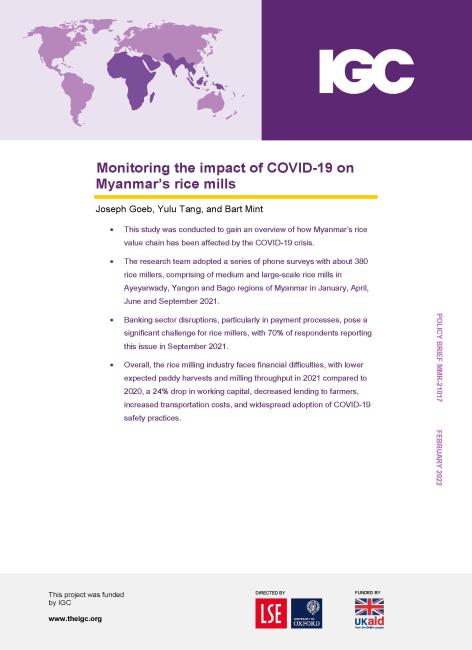Monitoring the impact of COVID-19 on Myanmar’s rice mills
Rice millers play an essential role in Myanmar’s food supply chain. This study aims to monitor the impacts and disruptions of COVID-19 on milling activities in Myanmar by tracking prices, materials being processed and credit offered to farmers.
Rice millers play an essential part in Myanmar’s food supply chain. In addition to their milling and processing roles, they buy paddy directly from farmers, offer inputs on credit as well as drying and storing paddy and milled rice.
Through these functions, mills add substantial value in rice supply chains, benefitting both farmers and consumers via food quality.
Any disruptions or shocks to rice mills will impact both rural rice-producing households and urban consumers. The objective of this project is to identify how milling activities are impacted by COVID-19 policies. We will track the prices of rice and paddy’s, the amount of milling materials being processed, credit offered to farmers and other potential disruptions from COVID-19.
This study will continue a series of phone surveys with medium and large-scale rice millers in Ayeyarwady, Yangon, and Bago regions of Myanmar. A sample of 657 mills from a 2019 study has been obtained and refined for use in this survey.




